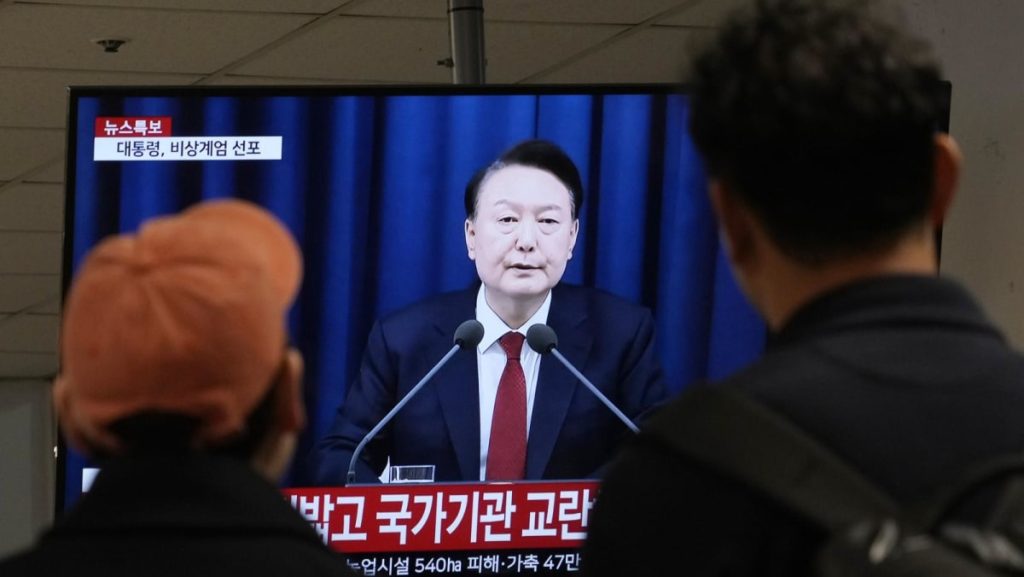On December 3, South Korean President Yoon Suk Yeol made a shocking announcement, declaring martial law during a late-night broadcast on YTN television. This unprecedented move was justified by Yoon as a necessary step to protect the nation from what he termed the “threat of North Korean communist forces” and to combat the pro-North Korean sentiments he attributes to opposition parties. Yoon emphasized that his decision was intended to preserve the free constitutional order of South Korea, which he argues is being jeopardized by opposition actions that he claims have effectively held the parliamentary process hostage.
In his address, Yoon accused the opposition Democratic Party, which holds a parliamentary majority, of engaging in anti-state activities that have paralyzed the government’s functions. He pointed to specific actions, such as the Democratic Party’s attempts to impeach top prosecutors and their rejection of the government’s budget proposal, as evidence of their obstructive behavior. This impasse over the budget has been a point of contention since Yoon took office in 2022, contributing to his declining approval ratings. The president’s remarks suggested a serious concern about national security and governance amidst ongoing political strife.
The declaration of martial law has sparked immediate backlash from the Democratic Party, which convened an emergency meeting in response to Yoon’s announcement. The party’s leader, Lee Jae-Myung, criticized the martial law as “unconstitutional,” arguing that it violates established legislative procedures. According to South Korea’s Constitution, a president can only declare martial law under specific circumstances, such as during wartime or in national emergencies. The Democratic Party, holding 170 out of 300 seats in the National Assembly, has the power to revoke this declaration through a majority vote, asserting a counterbalance to Yoon’s authority.
Political tensions are at an all-time high, with the parliament under significant strain. Following Yoon’s announcement, reports indicated that access to the National Assembly was blocked, complicating attempts by opposition lawmakers to gather and respond to the martial law declaration. This situation raises concerns about the potential for conflict between the executive branch and the legislature, further destabilizing the political landscape in South Korea.
Moreover, the implications of Yoon’s martial law declaration extend beyond immediate political disputes. He accused opposition lawmakers of essential budget cuts, warning that such actions could lead South Korea to become a “drug haven” and create chaos regarding public safety. This highlights the administration’s narrative that the opposition’s actions pose a significant risk not only to effective governance but also to the safety and well-being of the public. Yoon’s call for martial law, therefore, strikes at the heart of ongoing debates about governance, public safety, and national unity in the context of external threats from North Korea.
As the situation unfolds, it remains uncertain what specific measures of martial law Yoon will implement or how the Democratic Party will respond in the coming days. The declaration has put South Korea at a critical juncture, navigating the delicate balance between maintaining public order and ensuring democratic processes. The upcoming responses from both the government and the opposition will likely shape the country’s political trajectory and could have lasting repercussions on civil liberties and the governance framework in South Korea.

